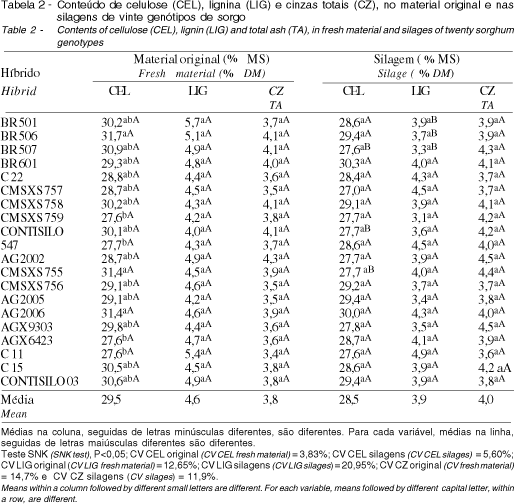The twenty studied genotypes of sorghum were cultivated and ensiled at 104 days of age, at dough grain phase, using "PVC" lab silos, presenting 10 cm diameter and 40 cm length. The silos were opened at 150 days after ensiling. A completely randomized experimental design was used. In the studied material (fresh and ensiled) the values of neutral detergent fiber (NDF), acid detergent fiber (ADF), hemicellulose, cellulose, lignin, total ash, dry matter (DM), crude protein (CP) and alcool soluble carbohydrates were determined. The mean values were of 61.8, 34.2, 27.5, 29.5, 4.6, 3.8, 25.7, 7.7 and 8.5% in the fresh matter and of 55.9, 32.6, 23.3, 28.5, 3.9, 4.0, 27.5, 8.6 and 0.8% in the silages, respectively. The hemicellulose and cellulose values decreased with ensiling, indicating that those fractions contributed with additional carbohydrates for the fermentation. The soluble carbohydrates values of the fresh material were higher for all genotypes, being intensively used in the silo, supplying a good fermentation standard. In the silages, the pH values were 3.5 and ammoniacal nitrogen (N-NH3) contents were inferior to 8.0% in all genotypes. The studied silages showed similar for all evaluating characteristics.
fermentation; fibrous fraction; quality; silage and sorghum





